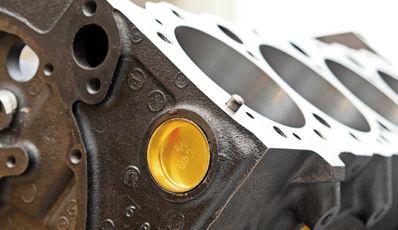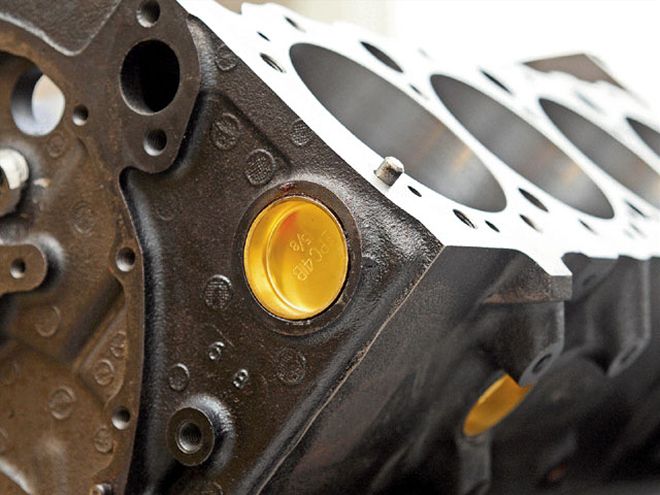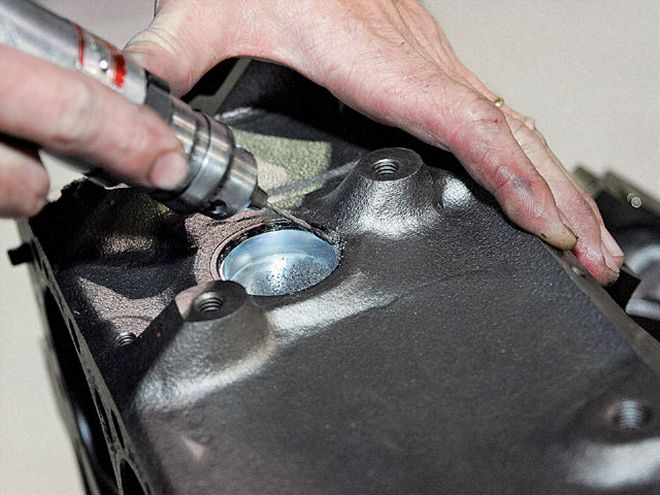
 Compared to the rest of the components in your race engine, freeze plugs are a nickel-and-dime part. But poor installation practices will allow coolant leaks and major headaches.
Compared to the rest of the components in your race engine, freeze plugs are a nickel-and-dime part. But poor installation practices will allow coolant leaks and major headaches.
In your racecar, a cracked block from frozen coolants in the winter isn't usually the problem. Leaking freeze plugs that dump coolant on the track, however, is. If you have a freeze plug work its way loose either from the vibrations from an engine operating at extended high-rpm levels or from occasional overheating, the coolant dump is usually right in the path of your rear tires. And a spin-out or wreck from a faulty plug is the last thing you want.
Of course, it is rare for a freeze plug to pop all the way out and dump coolant all over the racetrack. The more common problem is a slow leak that aggravates you to death. It is hardly worth pulling the engine to replace one plug, but the result is a slow coolant leak that constantly makes your car nasty.
With that in mind, here are a few tips for installing leak-free freeze plugs.

In high-performance applications where a failure can be worth big money, engine builders will often "pin" the freeze plugs to further ensure they won't come out. The process is fairly simple and you can do it yourself. Drill three holes just above the lip of each plug (on the chamfer of the plug bore in the block). Use a No. 38 bit and drill the holes on a 45-degree angle until they are approximately 0.300-inch deep. Now you can tap the holes and use button-head screws or use freeze-plug pins made specifically for this task. These pins save you the effort of having to tap each hole. Just use Loctite on the pins just like you do the plug itself.